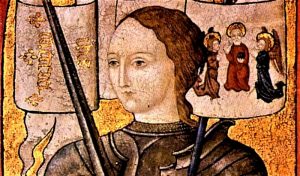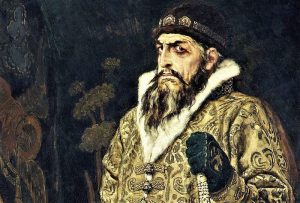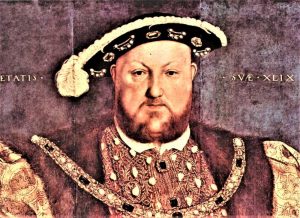Joan of Arc
Joan of Arc nicknamed "The Maiden of Orleans", was born in 1412 in Domrémy, Bar, France. She was declared the national heroine of France, at the age of 18 she led the French army to victory over the English in Orleans. Captured a year later, Joan was burned at the stake as a heretic by the English and their French collaborators. She was canonized as a Catholic saint more than 500 years later, on May 16, 1920.

Personal information
- Born: 06/01/1412
- Birthplace: Domrémy, France
- Deceased: 30/05/1431
- Place of death: Rouen, France
Who was Joan of Arc?
Joan of Arc was a young French daughter of peasants who came to be proclaimed for her faith and patriotism, who had the mission of saving France from the English occupation, and who assured that they were sent by God and that he was sending her messages of victory.
What she did
Juana accomplished the incredible mission God had given her, that of freeing her country from foreign invaders by taking thousands of soldiers into battle, even though she had no training as a soldier. She legitimized the French crown and laid the foundations of French nationalism.
Biography of Joan of Arc
Joan of Arc was born in 1412, in Domrémy, France. Daughter of poor tenants Jacques d’Arc and his wife, Isabelle, Joan learned compassion and domestic skills from her mother.
In 1415, King Henry V of England invaded northern France. After delivering a crushing defeat to French forces, England gained the support of the Burgundians in France. The Treaty of Troy granted the French throne to Henry V as regent of the foolish King Charles VI. Henry would then inherit the throne after Charles’ death. However, the two died leaving Henry’s young son as king of both kingdoms. French supporters of Charles’ son, the future Charles VII, felt the opportunity to return the crown to a French monarch.
Around this time, Joan of Arc began to have mystical visions encouraging her to lead a pious life. With time, they became more vivid, with the presence of Saint Miguel and Saint Cathaline who designated her as the savior of France and encouraged her to seek an audience with Charles, who had assumed the title and asked her permission to expel the English and install him as the legitimate king.
Death
Joan of Arc fulfilled the God`s will, as she confessed to the judges of the Inquisition who sentenced her. The young maiden went to Chinon, to the court of Charles VII, and wearing masculine clothes, as the voices had indicated, convinced the dolphin that she was the one sent to help him reconquer France.
Equipped with white armor and carrying a banner, she marched in front of the troops and forced the English to lift the siege of Orleans, defeated British General Talbot, and Charles VII was crowned king in Reims on July 17, 1429.
However, a year later, she was taken prisoner and handed over to the English, who accused her of heresy and condemned her to die at the stake. On the morning of 30 May 1431, 582 years ago, she was tied to a stake and burned alive in the Old Market Square in Rouen, northwest of France, and her ashes were thrown into the River Seine.
Canonization of Joan of Arc
Joan of Arc was a French heroine and saint. Her feast day is the day of her death on May 30. The clergy condemned her for heresy and the Duke John of Bedford burned her alive in Rouen. The family gathered the evidence for the review of the trial and sent it to the Pope, but he definitively refused to reopen the trial. At the death of Nicholas V, the Spanish Pope Callixtus III was elected and it was he who reopened the case. Juana’s innocence was recognized that same year, in a process where there were numerous testimonies and heretics were declared to the judges who had condemned her. In the 20th century, on April 18, 1909, she was beatified and later declared a saint in 1920 by Pope Benedict XV. She was also declared the Patron Saint of France.
Importance
Joan of Arc’s greatest importance was her participation with Charles VII to succeed in legitimizing the French crown that would later lay the foundations of French nationalism. She is also remembered as a national heroine by the people of France and as a saint by the church. She fought against the English occupation of France and lived as a martyr, sacrificing her life so as not to renounce her beliefs and her voices.
Books and films about Joan of Arc
Among the films that have been made and that reflect the life of Joan of Arc we mention the following:
- Joan of Arc by Cecil B. DeMille
- Joan of Arc’s passion for Carl Theodor Dreyer
- Joan of Arc of Victor Fleming
- Joan of Arc of Roberto Rossellini
- Joan, the iron lady of Otto Preminger
- Robert Bresson’s Joan of Arc Process
- Joan of Arc I, the battles and Joan of Arc II, the prisons of Jacques Rivette
Some books have also been written to reflect the life of the queen, among them:
- The book Joan of Arc by Astor is a 152-page work by the author Louis de Wohl, which was published by Word Editions, S.A. on April 8, 2005.
- Saint Joan of Arc. Queen, virgin and martyr: First documentary study in Spanish in the light of its processes.
- Joan of Arc, Mini biographies which is a 38-page book of Joan of Arc that was published on February 28, 2014. This book, created by Susaeta Editions S A, has been edited by Susaeta.
- The book Joan of Arc, the Books of Time, is a 408-page work about her by the author Vita Sackville-West published by Siruela on October 1, 2003.
Phrases
Her most famous phrases were the following:
- Work as if only your work could achieve the goal.
- I refer only to God. And as far as my visions are concerned, I do not accept the judgment of any man.
- Men fight; only God gives victory.
- I never committed mortal sin. Because in such a case my voices would have reproached me, my Spirits would have forsaken me.
- My voices tell me: Do not be afraid, answer boldly, God will help you.
- I was thirteen years old when I heard a voice. That voice told me that I would lift the siege of Orleans: You must save the nation and the king.
How to cite this article?
Briceño V., Gabriela. (2019). Joan of Arc. Recovered on 3 May, 2025, de Euston96: https://www.euston96.com/en/joan-of-arc/









